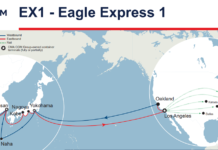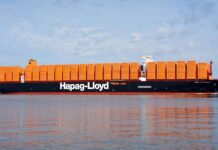
Αs the European Commission considers renewing the Consortia Block Exemption Regulation (CBER) that enables current container shipping alliances to operate, liner operators and shippers are once again locking horns.
The review is being done ahead of the existing CBER expiring on 25 April 2024.
The World Shipping Council (WSC), representing liner operators, said in a statement on 4 October that the CBER is an essential regulatory tool that yields significant benefits to the EU, with no downside from competition or consumer welfare perspective.
WSC and the International Chamber of Shipping opined that the CBER should be upheld to ensure continued efficient and competitive ocean transport for European shippers and consumers, while meeting climate goals.
“The frustration that shippers have understandably experienced from service delays and increased cost has been channelled towards carriers, their vessel sharing arrangements, and the regulatory tools which facilitate such arrangements, including the CBER. But data shows and regulators concur that the problems were caused by factors outside carriers’ control and not by vessel sharing,” says John Butler, president & CEO of WSC.
Shippers’ bodies, however, disagree. On 3 October, the European Shippers’ Council, CLECAT, FEPORT, Global Shippers’ Forum (GSF) and several others, wrote to EC competition commissioner Margrethe Vestager, urging that liner operators be allowed to cooperate, without extending the block exemption.
The letter stated, “As consumers or suppliers to the container shipping sector, we have lost confidence that the benefits of the Block Exemption are being fairly shared and that it’s meeting its intended purpose. The purpose of competition policy is to protect the interests of customers and consumers from the predatory effects of dominant suppliers and the establishment of cartelised operations.
“The experiences, frustrations, and dissatisfaction of large swathes of European business with the behavior of global shipping lines demands a change in approach as a means of restoring trust and confidence in the container shipping industry, which is vital to the economies of member states and meeting the needs of European consumers and businesses.”
Martina Li
Correspondent





